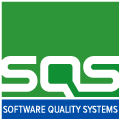Test automation is no longer optional: it is a key piece in the competitiveness of any company that develops or integrates software. In a market where speed is critical, relying solely on manual testing slows down time-to-market, increases the risk of defects in production and raises maintenance costs.
But to automate successfully it’s not enough to “write scripts”: you need strategy, test architecture and a vision of continuous quality. At SQS we have been helping companies for years to transform their testing cycle into efficient, scalable and measurable processes.
Real benefits of test automation
- Faster time-to-market. Automation drastically reduces regression time, key in agile teams, DevOps and frequent deployments.
- Reduction of production errors. Automated tests allow early detection of failures and prevent them from reaching end users, saving costs and reputation.
- Standardisation and repeatability. Automated suites guarantee consistent results, minimising human variation and enabling stronger audits.
- Medium-term savings. Although the initial cost can be higher, the return is fast: the same scripts can be reused hundreds of times in each sprint.
Strategy for successful automation
- Select what to automate (and what not to). Not everything should be automated. At SQS we prioritise:
- Repetitive cases
- Critical business rules
- Regression flows
- Complex integrations
- Avoiding volatile or poorly defined tests is key.
- Build a solid framework. Designing a modular, maintainable and scalable automation architecture is essential to avoid technical debt.
- Integrate automation into your CI/CD pipeline. Automation creates real value when it is part of the CI/CD pipeline and executes tests on every commit or deployment.
- Measure quality KPIs. SQS assists companies in defining KPIs such as:
- Production failure rate
- Average execution time
- Percentage of automated coverage
- Defects detected per sprint
Automation is the basis of sustainable and continuous quality.
If your company wants to improve efficiency and reduce risks, SQS can help evaluate your current status and define an automation roadmap tailored to your organisation.
Request a free initial consultation.








